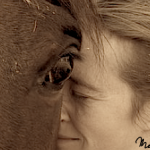Vetmed? Lettuce?
| July 30, 2012 | Posted by Melinda under Uncategorized |
Another good indication that it’s summer: This morning I woke up and decided to spend the first hour of my day laying in bed and catching up on my blog reading. Why did I want to go to vet school? Why not just spend my days relaxing at home and becoming the quinsessential housewife? Of course, there is that little problem that my standards of house cleanliness may disqualifying for that job, as does my general distaste for anything to do with floors, vacumns, and mops.
Funder asked a very good question. What the heck am I doing in a lettuce field? And the unasked question is: What does any of this have to do with vetmed?
The lettuce study is focused on answering some of the questions that arose from the salmonella/ecoli outbreaks in leafy greens. How is the contamination occuring? What animals that are depositing feces in the field are responsible? Is there a particular sex, age, or species more likely to be infected with the pathogen? If feces are found in a field just prior too and during harvest, how much lettuce needs to be discarded around the pile of poo? If there is feces are the ground, what factors are important in determining whether there will be contamination on the surrounding lettuce? What field management and irrigation techniques lead to an increased risk of contamination?
A public health veterinarian is a career that works with the overall picture of animal factors/health and the effect on humans. It could be a disease process such as West Nile Virus that is being carried my mosquitos, birds, livestock and causes human illness. It could be food bourne such as Ecoli outbreaks in the food chain. Almost all Ecoli O157:H7 outbreaks are animal in origin. Public Health veterinarians fit animal health into the larger picture, of how it affects humans, our communities, and our collective health.
In the lettuce problem, animal activity is contaminating the lettuce. The problem will only be managed by looking at all aspects – the animals that are coming into the field, the irrigation and other management practices, harvesting practices, processing practices, public education etc. Think of public health vets as dedicated to improving human health through the management of animals, whether they be pets, livestock, or wildlife. No, I’m not likely to work in a clinic, but I think it will still be a lot of fun nevertheless (and I plan on doing “fun” vet things on a part time basis, like vetting endurance rides, working weekend clinics etc.).
And that’s what I’m doing in a lettuce field this summer.











And I haven’t even got to the part where I got to play with goats all day in a pasture to test out some new air samplers, or that I get play with raw kiefer and inoculating it with some pretty cool pathogens to see if bacteria thrive in raw kiefer etc! Vetmed is a cool field because you can do pretty much anything.
Thanks – being called cool is high praise from the coolest librianian in the world.
You are so cool. Who knew that lettuce was interesting?